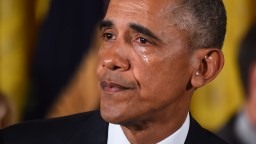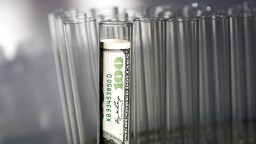The Present
All Stories
Want to make someone an offer they can’t refuse? Understand how our minds are hung up on loss aversion, says former FBI negotiator Chris Voss.
▸
3 min
—
with
Go fearlessly into the Internet, but not blindly, says Virginia Heffernan – each corner of digital culture has its best practices. Not learning them is a disrespect.
▸
7 min
—
with
Not every language agrees on how many colors there are. With some having more terms and others fewer. But does that mean we see the world differently?
A report by UK’s parliamentary committee tackles the issue of non-integration in the country’s Muslim communities.
Overpopulation is often viewed as a nightmare, but what if it’s a dream come true?
A patent filed for Amazon’s “airborne fulfillment centers” reveals the e-commerce giant’s plans for the future of delivery.
No offense, says Slavoj Žižek, but maybe we need to incorporate some “gently racist” icebreakers into our conversations.
▸
10 min
—
with
Let’s not let the prospect of a little free money stop us from pursuing more progressive regulations and reforms.
Author and robot expert Dr. David Levy explains how marriage with robots will come in the next several decades as technological and societal transformations take place.
Add to playlist! Stanford University posts its Ho Center for Buddhist Studies series of talks on YouTube.
A new study reports that 32,000 lives could be saved annually if every doctor in the U.S. was female. What can this teach medical institutions about best practices?
The United States and Russia are longtime geopolitical adversaries looking for a new way forward.
With President Trump appointing officials who want to abolish the departments they hope to lead, one might ask, “What is the rationale for this?”. Milton Friedman offers us an answer.
A recent tweet from Donald Trump plummeted the value of Lockheed Martin’s stocks. What implications does this hold about the economic influences of social media?
Times of great fear can lead to greater oppression. For Amani Al-Khatahtbeh, the prospect of a Muslim registry is obscene, and it’s slippery slope to something much worse.
▸
7 min
—
with
The United States of America is as divided now as it has ever been. Why is this? One author suggests that it is because we have never been one united nation, but 11 differing ones. Founded for different reasons and striving towards conflicting goals, can they ever learn to get along again?
Imagine a world where governments compete for your citizenships. Bitcoin and Blockchain expert Toni Lane Casserly explains how this technology could anoint people over institutions.
How Blockchain Can Empower Migrants and Refugees
▸
12 min
—
with
People like Thomas More, Abraham Lincoln, Franklin Roosevelt, and Bertrand Russell have already had many of the arguments we’re having about basic income today.
Dr. Elise Klein wants to point out the conversations we’re having around Universal Basic Income (UBI) aren’t new. Great leaders and thinkers Thomas Paine, Abraham Lincoln, Franklin Roosevelt, and Tony Atkinson have already had many of the arguments surrounding UBI, today. Its history bears repeating.
Despite our romanticized vision of social media as a global town square overflowing with diversity, the reality is that each user’s experience is hyper-filtered.
Donald Trump campaigned on the imperative to bring back jobs for Americans. He should turn to Elon Musk to succeed on his aims.
The ranking of empathy from highest to lowest goes liberals, conservatives, libertarians. But the difference is minor, says Paul Bloom. Typically the debate isn’t all over whether or not to empathize – it’s over who to empathize with.
▸
5 min
—
with
Here’s something to think about the next time you see a filthy Abe Lincoln on the sidewalk.
A Cornell University professor believes he has our food, climate, and fuel revolution answered all with one organism: microalgae.
Elon Musk shared his thoughts on the future of jobs and the government’s role in a rapidly changing society.
Only two things will change the minds of science skeptics: appeals to their ego, or their wallets.
▸
5 min
—
with
It’s time we talked about working less. While some argue that we shorten the working week, others favor cutting out pointless, time-filler jobs altogether.
When the rest of the world chooses nationalism, Iceland chooses radical change.
Before we had the right to vote, we had the right to protest, says journalist Wesley Lowery.
▸
6 min
—
with
Democracy needs a new PR team. Polls about the way US millennials view democracy seem shocking, but analyzing their reasoning brings about an unsettling truth.
Pedal faster, we need the juice! The tech giant is about to become the world’s greenest company. Here’s how.





























